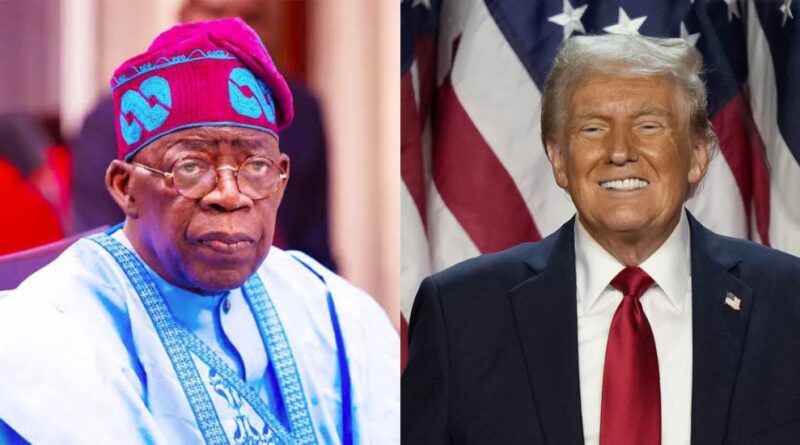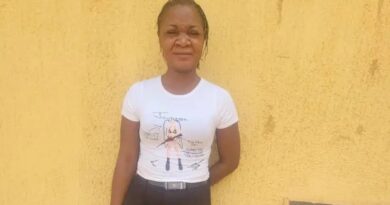US Congress Probes Alleged Christian Killings in Nigeria
The United States House of Representatives is intensifying its review of religious violence in Nigeria as the Subcommittee on Africa prepares for a public hearing on Thursday, November 20, 2025. The session will examine President Donald Trump’s recent redesignation of Nigeria as a Country of Particular Concern, a classification that could lead to sanctions and other policy measures.
Congressional Review of Nigeria’s CPC Status
The hearing will take place at 11 a.m. in Room 2172 of the Rayburn House Office Building and will be streamed live for global viewers. It will be chaired by Representative Chris Smith of New Jersey.
The Country of Particular Concern designation signals Washington’s concern that religious freedom in Nigeria is under serious threat. If approved by the U.S. Senate, it could result in restrictions on bilateral assistance and sanctions against individuals responsible for persecution.
Witnesses Expected at the Hearing
Two panels of witnesses will provide testimony. The first panel includes senior U.S. State Department officials, Jonathan Pratt from the Bureau of African Affairs and Jacob McGee, Deputy Assistant Secretary in the Bureau of Democracy, Human Rights, and Labor.
The second panel will feature civil society and religious leaders, including Nina Shea, Director of the Centre for Religious Freedom; Bishop Wilfred Anagbe of the Makurdi Catholic Diocese; and Oge Onubogu of the Centre for Strategic and International Studies. They are expected to discuss the patterns of violence and the humanitarian impact on communities across Nigeria.
Focus on Rising Religious Violence
President Trump redesignated Nigeria as a Country of Particular Concern on October 31, 2025, citing severe violations of religious freedom. He claimed that Christian communities face existential threats from extremist groups and warned that the U.S. would take action if the situation did not improve.
Trump indicated that aid could be suspended and other measures, including sanctions, considered if Nigerian authorities failed to address the violence.
President Bola Tinubu rejected these claims, describing them as a misrepresentation of Nigeria’s religious environment. He emphasized that Nigeria remains committed to constitutional protections for religious liberty and opposes all forms of persecution.
ALSO READ: Pastor Faces Death Threats for Exposing Attacks
Reports from the Ground
Bishop Anagbe, who will testify at the House hearing, recently spoke at the United Kingdom Parliament about persistent attacks on Christian communities in Benue State. He described the destruction of homes, displacement of residents, and targeted attacks on villages and churches by militant groups. His account aligns with repeated reports of violence from extremist factions, including armed herders and insurgent groups.
Comments from US Legislators
U.S. lawmakers continue to debate the extent of American involvement. Congressman Riley Moore said Congress is gathering information through committees and consultations with the State Department. He described the killings as horrific and stressed the need to identify the root causes.
Moore countered President Tinubu’s statements, noting that some Nigerian states maintain blasphemy laws and that some individuals face severe penalties for religious-related offenses. He added that data suggests Christians are disproportionately affected by the violence.
On whether Washington should intervene in another sovereign nation, Moore said the U.S. has a moral obligation to respond to persecution. He noted that the CPC designation allows the U.S. to use diplomatic and economic tools such as sanctions and financial restrictions.
ALSO READ: Evangel University Launches Global AGTS Program
Vatican Response
Pope Leo XIV expressed concern about violent attacks on Christian communities in Nigeria and other countries. He cited Nigeria, Mozambique, Sudan, and Bangladesh as regions where believers and worship centers have faced repeated assaults. The Pope called for prayers and renewed commitment to peace and cooperation among religious groups worldwide.
US Lawmakers Discuss Military Action
While President Trump suggested that military action is possible, some members of Congress have downplayed that likelihood. Representative Bill Huizenga said military intervention is unlikely, noting that sanctions and diplomatic measures are more probable. He added that economic pressure could disrupt funding to extremist networks and reduce violence.
Nigerian Government Initiatives
Within Nigeria, efforts are underway to address communal conflicts. President Tinubu sent Dr. Abiodun Essiet, his special assistant on community engagement, to Plateau State to mediate tensions between Christian communities and Fulani leaders. Meetings included religious leaders, youth representatives, and local authorities.
One intervention resolved a conflict in Gyel district, where compensation was paid following farmland destruction. The agreement promoted peace among all parties involved.
Content Credit: Ohidah Oluwaferanmi
Image Credit: the whistler.com




